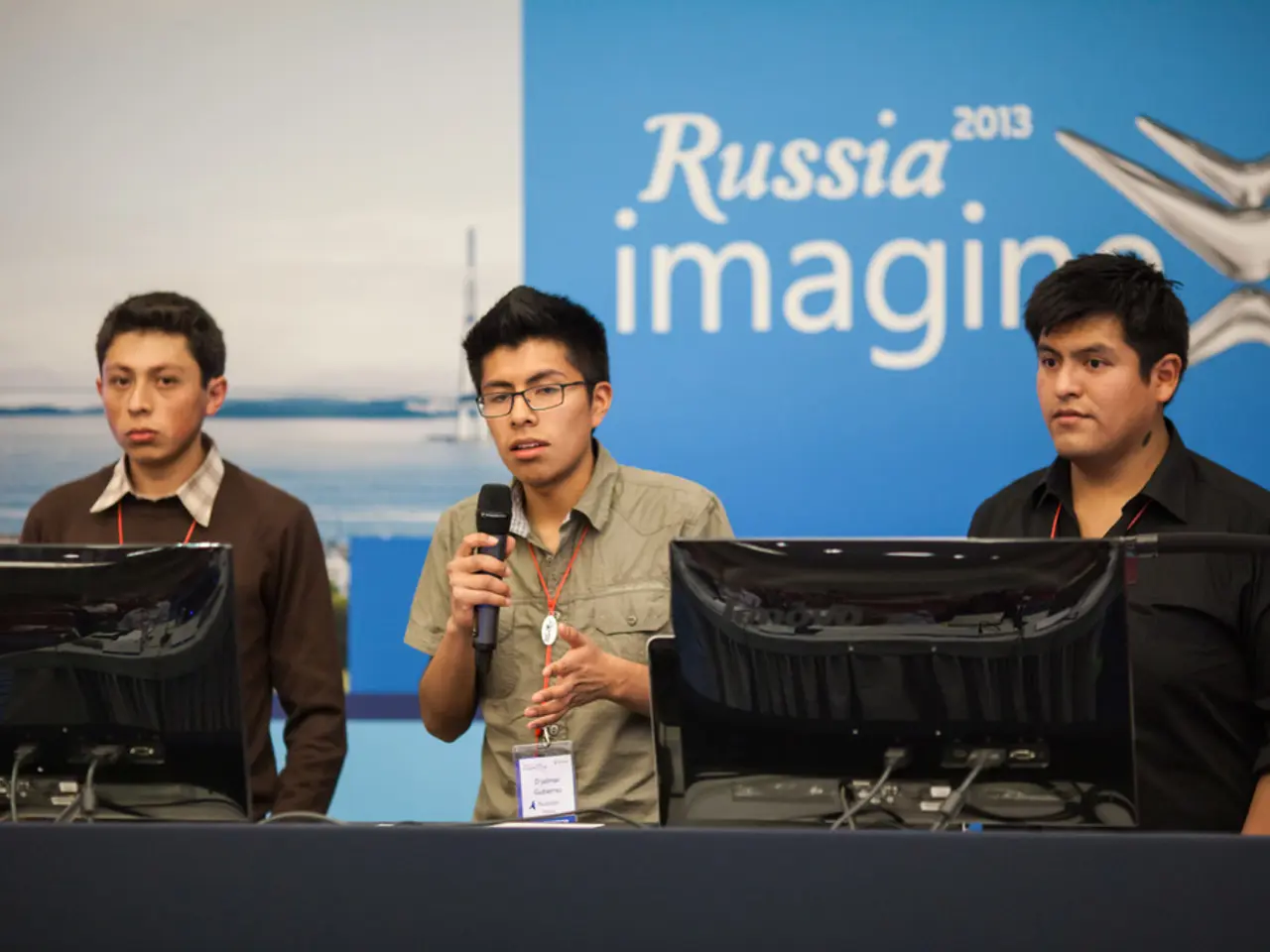Potential economic restrictions on Russia by the U.S. may distance it from international powers, specifically China and India, according to a member of the LATO board.
In a dramatic turn of events, US President Donald Trump has issued an ultimatum to Moscow, threatening to impose 100% import tariffs on Russia's trading partners if a ceasefire agreement is not reached within ten to twelve days. This decision comes amidst growing criticism from Trump's political allies over his approach towards Russia.
The potential tariffs could have significant implications for global trade, particularly for the EU and China. Sandis Sraders, a researcher at the Latvian Institute of International Affairs (LAI) and board member of the Latvian Transatlantic Organization (LATO), suggests that China's continued purchase of Russian fossil fuels could strain EU-China relations, complicating cooperation on climate and trade issues.
The EU is keen on reducing its reliance on Russian energy and promoting a global energy transition aligned with its climate goals. China's ongoing imports of Russian fossil fuels undermine Western sanctions aimed at pressuring Russia economically, potentially creating friction with the EU and its allies.
The EU's energy security and sanctions stance, EU-China climate cooperation challenges, trade and geopolitical tensions, and US secondary sanctions and tariffs are key factors shaping this impact. The EU is coordinating with the US on limiting Russian fossil fuel flows and China's continued purchases may be seen as undercutting this effort, risking negative perceptions in Brussels.
If China resists complying with potential US sanctions, the EU may be forced to navigate between supporting US sanctions and maintaining stable relations with China. This dynamic could hinder cooperation in energy transition technologies and climate diplomacy, forcing the EU to balance its economic and strategic interests carefully.
Meanwhile, the US President has promised NATO Secretary General Mark Rutte that arms supplies to Ukraine will not be restricted, indicating a closer alignment between the US and European countries on security issues. However, it remains unclear whether Trump will impose 100% import tariffs on Indian exports to the US if India continues to buy Russian fossil fuels.
The LATO board member suggests that this geopolitical realignment could significantly alter EU-China relations, as the EU has historically viewed China as an economic opportunity rather than a security concern. If the rhetoric with Russia, China, or India deteriorates, the US President may change these conditions as well.
The US Congress has developed sanctions that would impose 500% secondary tariffs on countries that cooperate with Russia. As the situation unfolds, it is crucial for global powers to navigate these complex geopolitical dynamics carefully to ensure stability and peace.
[1] Sraders, S. (2021). The Impact of US-China Trade Tensions on EU-China Relations. Latvian Institute of International Affairs.
[2] European Commission. (2021). EU-China: Joint Statement. European Commission.
[3] Xinhua. (2021). China's climate goals: Where do we stand? Xinhua.
[4] European Parliament. (2021). EU-China Trade and Investment: A Strategic Outlook. European Parliament.
[5] White House. (2021). Fact Sheet: The Biden-Harris Administration's Strategy for Engaging with Russia. The White House.
- The potential tariffs set by the US President, if implemented, could significantly impact the global economy, particularly the EU and China, by influencing their energy policies and commerce.
- The EU's energy policy is focused on reducing dependence on Russian energy and transitioning to a global energy system aligned with its climate goals, but this could be complicated by China's ongoing imports of Russian fossil fuels.
- The strained relationship between the US and Russia, and potential US tariffs on trading partners, could impact the politics of energy and finance, potentially altering the EU's relationship with China.
- As global powers navigate the complex geopolitical dynamics of war-and-conflicts, policy-and-legislation, and general-news, they must tread carefully to ensure stability and peace, as demonstrated by the US Congress' proposed 500% secondary tariffs on countries cooperating with Russia.




